| Having trouble viewing this mail? Click here to view online. |
|
|
 |
|
|
|
| |
|
Analysis for research underpinning eyes4earth.org is nearing completion and the writing-up of thesis and articles awaits. This may be the last online update for a while so thought I would take the chance to reveal a few of the emerging results - though without being peer-reviewed nor being able to provide all the caveats here, care should be taken in interpreting these results too liberally. There is plenty to report on but I will just stick to the significant preliminary findings for now. From our study sample, we have found that people who have more frequently had a meaningful nature experience also scored higher on the connectedness to nature scale. People's connectedness to nature does not seem to have any influence on their perception of how invasive species may affect their meaningful nature experiences. It is unlikely these meaningful experiences can be manufactured but maybe they can be cultivated: We found statistically significant correlations between people who engage in self-awakening / spiritual / religious practice with both their frequency of meaningful nature experiences as well as their overall scoring on the connectedness to nature scale. Qualitative analysis of experiences reveals common themes, such as feelings of awe, amazement, aliveness, connection, oneness, humility. Meaningful nature experiences may happen during emotionally turbulent periods or times of intense focus. They are often spontaneous non-ordinary encounters in remote (protected) areas – including the ocean - but can also occur in suburbia. With animals, the length of time and proximity of the encounter are often cited. A perceived reciprocity through eye-contact, or a sense of desired interaction / communication from the animal is frequently noted. Any notable paralleling of one's inner thoughts with the outer events adds layers of meaning to the experience. Big charismatic mammals featured prominently in stories - though not for all types of experiences and this is an interesting twist which I will reveal at a later date. Similarly, next update will report on meaningful experiences with landscape (i.e. those which did not involve an animal), as they seem to have a slightly different quality and emphasis to them. Thanks to everyone who has shared their personal stories and/or completed the online survey, and in particular to members of the Foundation for Natural Leadership for their recent contributions. And a big cheers to research assistants Carly and Barbara without whom these results would not be possible. Regards, Matt. | |
 | |
| Recent News
| |
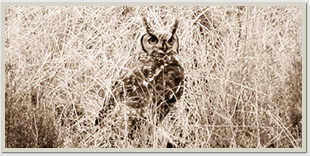 Don't Kill the Messenger!
Don't Kill the Messenger!
Concerns are sometimes expressed about how indigenous perceptions of certain animals acting as a 'sign' or 'omen' for an undesirable event (e.g. death) may in fact endanger the species existence. In Africa, owls and snakes are prime examples of this. But is this a problem of indigenous knowledge per se or is it a symptom of loss of indigenous knowledge? 
|
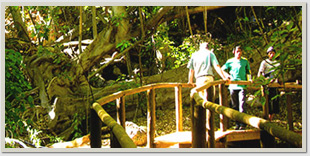 Where the Wild Figs Grow
Where the Wild Figs Grow
Members of the Baviaansloof Nature Awareness Group came together again recently. Under the shade of Sewefontein's serene wild fig tree forest, a couple of group members met to discuss preferences and priorities for future training and local nature awareness activities… 
|
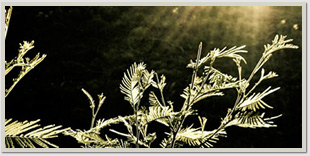 Out of this Worldview: When Aliens Invade
Out of this Worldview: When Aliens Invade
The 4th World Conference of Ecological Restoration took place in Mexico in August. Matt gave a presentation about how exotic and invasive vegetation affects our meaningful experiences in nature – from both Western and Indigenous perspectives. 
|
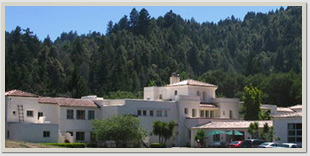 Nature Writing as Wilderness Experience
Nature Writing as Wilderness Experience
Is it possible to cultivate non-ordinary experiences with nature and, in doing so, allow the non-ordinary to become the ordinary? A recent workshop in the Santa Cruz mountains explored this possibility through the art of nature writing and intuitive enquiry. 
|
| Recent Weblog Posts
| |
|
Wildlife Encounters: What Makes the Magic?
Art of Mentoring: Nature Connection & Cultural Repair Poetry: Collections and Reflections from a Baviaanskloof Cave
Psychic Sheep? Unravelling the Woolly Stuff…
A Player in Wilderness Connection...
| |
|
| |
|
| |
| Stay Involved
| |
 |
Your story on the map
eyes4earth.org invites you to share your stories about meaningful nature experiences and profound wildlife encounters and join others in putting them on the map. We have got a growing collection from around the world but could certainly use more! Share your story, its context and why it was meaningful to you. 
|
 |
Tell us more about what you feel
If you have had a memorable experience of synchronicity in nature, please go ahead and take the survey below. Synchronicity is understood as a meaningful coincidence where there is an unlikely paralleling of events, usually between the 'inner' state of the observer and the 'outer' physical state of the observed. The results are being used to further research on how experiences may influence one's connectedness to nature and if there is scope to include this in education curricula. 
|
 |
Upcoming Activities
Matt will give an oral and poster presentation at the forthcoming International Congress for Conservation Biology in Auckland, New Zealand, 5th -9th December, 2011. Latest results of the research will be presented. Matt will spend January to April 2012 in relative solitude in Australia focusing on writing up (and hopefully almost winding up) his PhD research. It may be a while before you receive another eyes4earth update. |
|
Plus... Check out the updated Resources page on eyes4earth.org and if nature-inspired poetry in less than 140 characters is your thing, then be sure to take a look at the eyes4earth Twitter page which is filled with an assortment of random verse sourced from personal direct experiences with nature. And if you like this then you are welcome to connect on Facebook too. | |
|
| |
|
| ||
| Themes
| ||
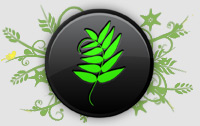 The Question "What did nature do for you today?" This theme is about deepening understanding and awareness of the importance of nature's 'services' in supporting human well-being and sustainability. We are learning about the diverse ways we perceive our interactions with ecosystems on a day-to-day basis. 
|
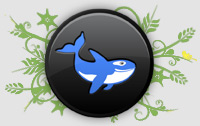 Where's My Whale This theme searches for evidence of profound experiences with nature. How common are inexplicable encounters with wildlife? Under what conditions do these events occur and what can we learn from them? Do they help us reconnect with biodiversity in more meaningful ways? 
|
 Climate Consciousness This theme seeks out solutions to climate change and the environmental crises of our time. It invites you to join in exploring bold approaches which simultaneously aim to address the crisis in human consciousness. How can we accelerate global sustainability action and education? 
|
|
| ||
|
| |
|
eyes4earth.org acts as an outreach portal for research being led by Matthew Zylstra and based at Stellenbosch University (Department of Conservation Ecology & Entomology and Faculty of Education) and housed within the TsamaHUB's trandisciplinary doctoral programme in sustainability. The research is funded through the DST-NRF Centre of Excellence for Invasion Biology. Partners to eyes4earth.org include the Kenchaan Foundation, Living Lands, TerraPi and the PRESENCE network. In-kind support of equipment has been supplied by IDEA WILD and the Canon Australia Environmental Grant. eyes4earth.org is an EarthCollective initiative.
www.eyes4earth.org | |
|
|




